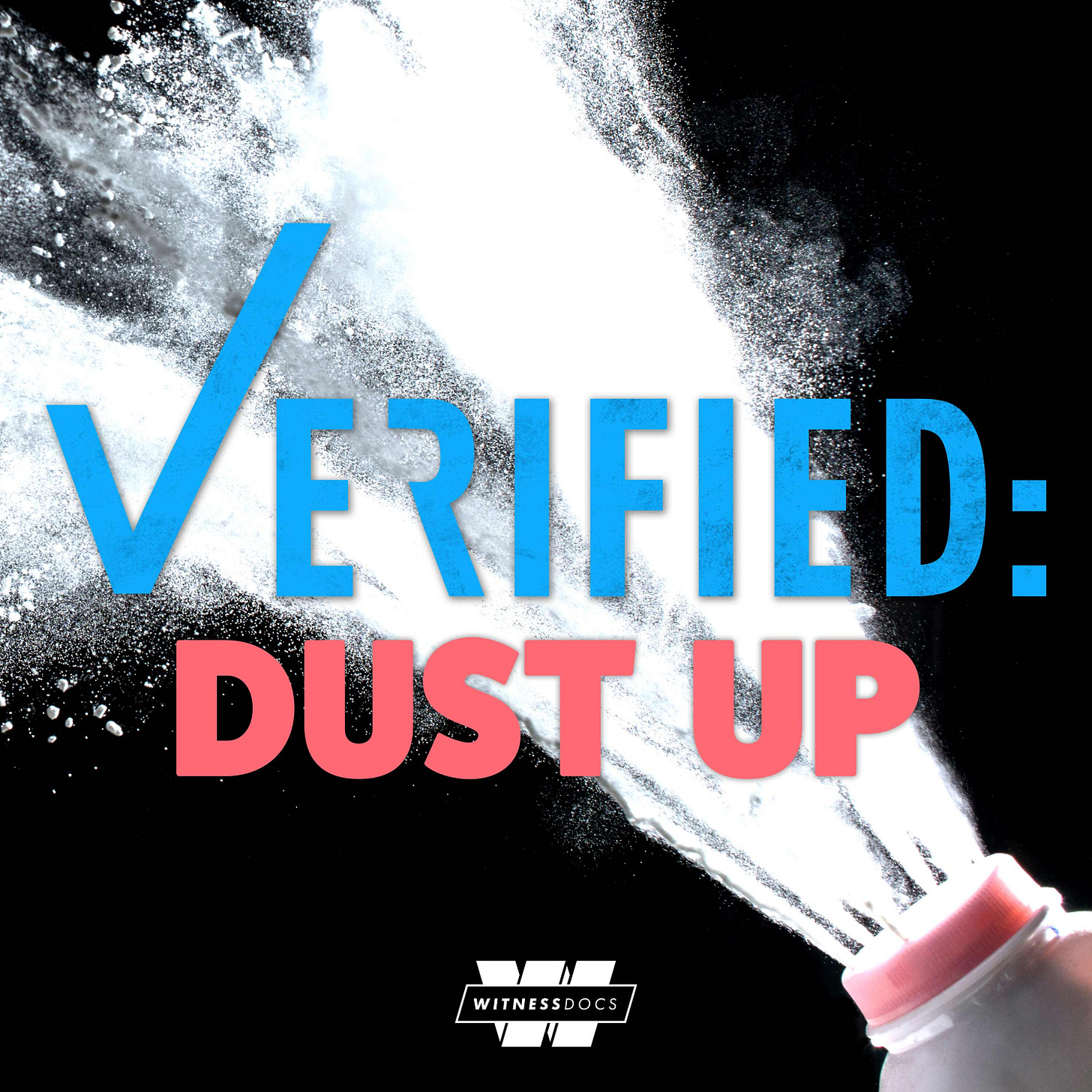This is how you challenge a massive, multinational company... with a podcast
How do you best balance "emotional journey" and "investigative journalism"?
“In Dust Up we had some amazing characters, but we also had a very complex 40-year history with essentially a corporate secret… that had successfully been kept out of the public eye for decades,” says Susanne Reber, the Executive Producer and Creator of serialized podcast Verified.
In this instance the company was Johnson & Johnson and the story of the podcast's second series follows a host of people suing the company over J&J's signature baby powder causing ovarian cancer. Yes, the same baby powder that you or a family member has probably been using since birth!
“The driving question of the series is how did a company manage to keep a secret for almost fifty years? They managed to suppress these questions about safety,” says Susanne.
Tip 1# - How do you best balance "emotional journey" and "investigative journalism"?
“I don’t think of the company, like Johnson & Johnson in this example, as the opposition. The company has been out there making this product for decades,” she says. “It is a signature product. It is very much part of their identity. And you start to think of it as an ecosystem. And you try to bring that to life for the listener.”
“It is all about looking at it like a screenwriter. And to ask - whose point of view are we in?” says Susanne. “I’ve worked with a lot of people who haven’t worked on a podcast series before. They are still attached to their paper scripts. Everything looks great on paper. But listening to how it sounds and making sure it makes sense is the key.”
Susanne and her team have a refined process when working on Verified. There have been two series so far with a third in production. “The first draft is always the hardest. The vomit draft. You just hope that you can make something good out of it. The best thing is getting to the first draft really quickly,” says Susanne. “But we do a lot of intense work on structure and storyboarding. We use coloured sticky notes to start writing up the scenes.”
“I believe that having a character driven narrative is better,” she says. And, she says, it is crucial that the listener doesn’t get lost in exposition. “But what we had for Dust Up was the documents. We had the communications from behind the scenes. In an investigative series you need to footnote all your scripts. You need to do your own due diligence.” It is called Verified, after all. So, though you are looking for the emotion, this can't be at the cost of your investigation.
“You can only do a story about what you have. You can’t do a story about what you DON’T have, even if you have an instinct for certain things,” she says.
LISTEN NOW: In the second season of the Verified podcast the team are investigating whether a group of women developed ovarian cancer from dusting their bodies with Johnson & Johnson’s baby powder - an iconic brand associated with innocence and comfort since the 1800s.
Presented by: Natasha Del Toro. Created by: Susanne Reber.
Listen on Apple Podcasts | Spotify
Tip 2# - Make a character the protagonist (not the journalist)
“True crime in podcasting is huge. I still think the intersection between true crime and investigative is the sweet spot,” says Susanne. “My vision for Verified is to give an audience stories of ordinary people facing extraordinary things.”
Susanne’s ideal is to have one of the characters be the protagonist and not the journalist. “We had characters that drove the investigation themselves,” she says. There are journalists in Verified, of course, but they don't drive the story.
“As we have gone along and tackled more investigative themes it’s always a challenge to see if you can still make it about human beings.” Throughout the series you never feel overloaded with the backstory. It comes and goes with the characters.
“We had discussions about how much courtroom drama the listener can cope with,” she says. The CEO of Johnson & Johnson comes in to testify in the final episode and it is incredibly powerful.
“I think a lot of times with investigative journalism we get a little bit caught up in findings and data and we lose sight of if we are talking about real people who are having to face challenges.”
“You can’t do narrative interviewing and fact-finding at the same time,” she says. “I make a distinction between what kind of interview you are in. I tell my team: think of it like narrative interviewing is one style, fact-checking is another, accountability is another. If you mix all that up in one sitting then you just shut down the character and they are not going to talk.”
On getting people to open up: “When you come at people that are involved in these very complicated things and you are just very open then you make it clear that you are not there to interrogate them, but you are there to have a conversation.”
“I often say to the team - stop using the word 'interview'. That sounds like a cop thing. Call it a 'conversation'.”
“Sometimes all you need is: ‘Tell me what happened?’” Then you need to factcheck what they said and perhaps go back to them to clarify certain things. That’s very different than if you start with the idea that you are judging them in that first interview. Remember: you are in a privileged position that they are even telling you their story.”
Susanne says that everyone who works with you on this high level of being interviewed again and again over many months also checks you out. "We let them interview us. Because it is a relationship that you are building," she says.
“We worked really hard on episode 1,” she says. This is to get people through the door. “If people are connecting with the characters from the beginning then we hope that they will stay,” she says.
All the best,
Paul
If you'd like to chat more about podcasts you can just hit "reply" to this letter. I'd love to hear from you.
LISTEN NOW: In the second season of the Verified podcast the team are investigating whether a group of women developed ovarian cancer from dusting their bodies with Johnson & Johnson’s baby powder - an iconic brand associated with innocence and comfort since the 1800s.
Presented by: Natasha Del Toro. Created by: Susanne Reber.
Listen on Apple Podcasts | Spotify


